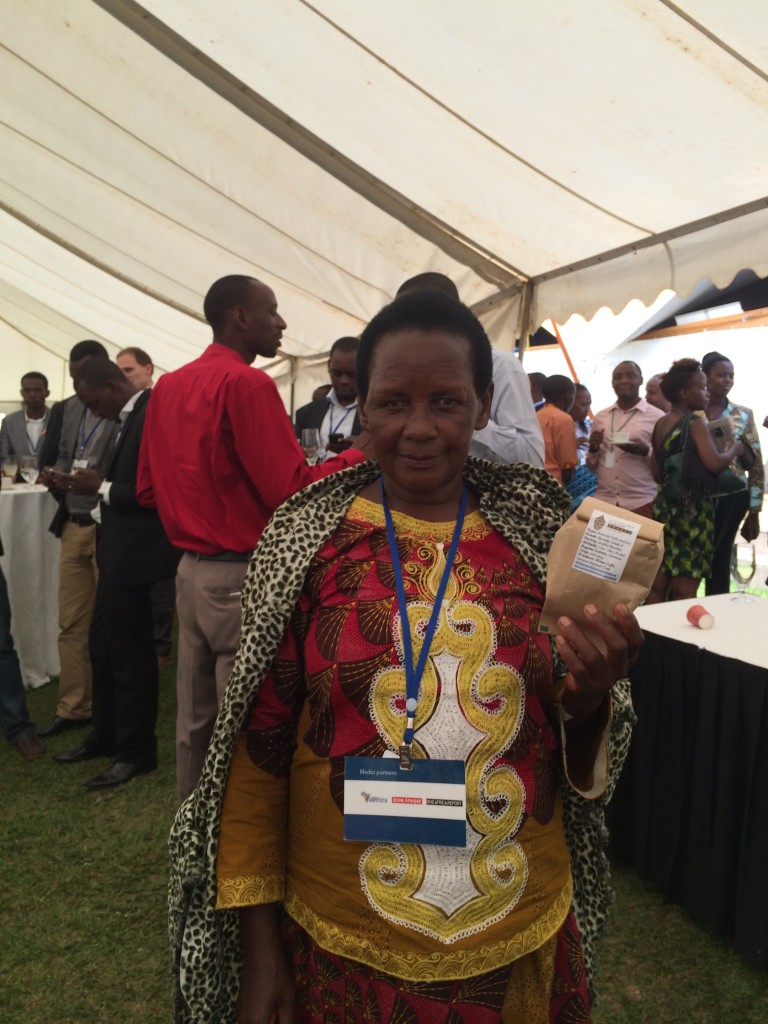From Farmer to Entrepreneur

Last week, Asterie Mukangango—Rwandan farmer, president of the Nyampinga cooperative, and an early trainee of Sustainable Harvest-Rwanda—attended the 2014 Women Vendors Exhibition and Forum (WVEF) in Kigali. Just a year ago, she and her fellow cooperative members were farming small plots of coffee trees with no knowledge of the coffee value chain beyond the processing facility where they sold harvested coffee cherries.
Now Asterie and her cooperative are increasing ownership of their coffee with the help of Bloomberg Philanthropies and its partner Sustainable Harvest. Sustainable Harvest Rwanda and Bloomberg Philanthropies founded the nonprofit Relationship Coffee Institute, which works in Rwanda to source coffee while emphasizing quality, relationships, transparency, and sustainability throughout the supply chain. By using this model, Asterie and nearly 1,000 additional women farmers gain access to coffee agronomy best practices as well as training in coffee processing, roasting, and tasting.
Supported by Bloomberg Philanthropies, Sustainable Harvest-Rwanda and the Relationship Coffee Institute joined Asterie and female vendors and buyers from around the world at this year’s WVEF. Sponsored by the International Trade Commission and the Rwanda Development Board, the forum coincided with the annual World Export Development Forum also held in Kigali. Particularly relevant to coffee producers like Asterie was the Fifth Senior Executive Roundtable on Sourcing from Women Vendors, which highlighted the importance of inclusive sourcing from women entrepreneurs on an international level.
I had the good fortune of participating in this roundtable and discussing how to leverage Rwanda’s untapped pool of women entrepreneurs—a group with much potential, as they are known to reinvest their income in family health, nutrition, and education. Asterie embodies the positive potential of investing in Rwandan women; she’s a mother and grandmother who prioritizes educating not only her family but also the younger members of her cooperative members, in turn strengthening her entire community.
At this week’s forum, Asterie attended training sessions that primed her to engage in policy discussions like the ones brought up at the roundtable. She learned about the process, challenges and barriers of exporting. Armed with green and roasted samples of Nyampinga coffee, she engaged with the coffee supply chain, further understanding the cooperative’s role in the process. Given her commitment to her community, she will share these new learnings with her fellow cooperative members so they may empower themselves through business growth and access to more of the value chain.
Ruth Coleman is executive director of the Relationship Coffee Institute.